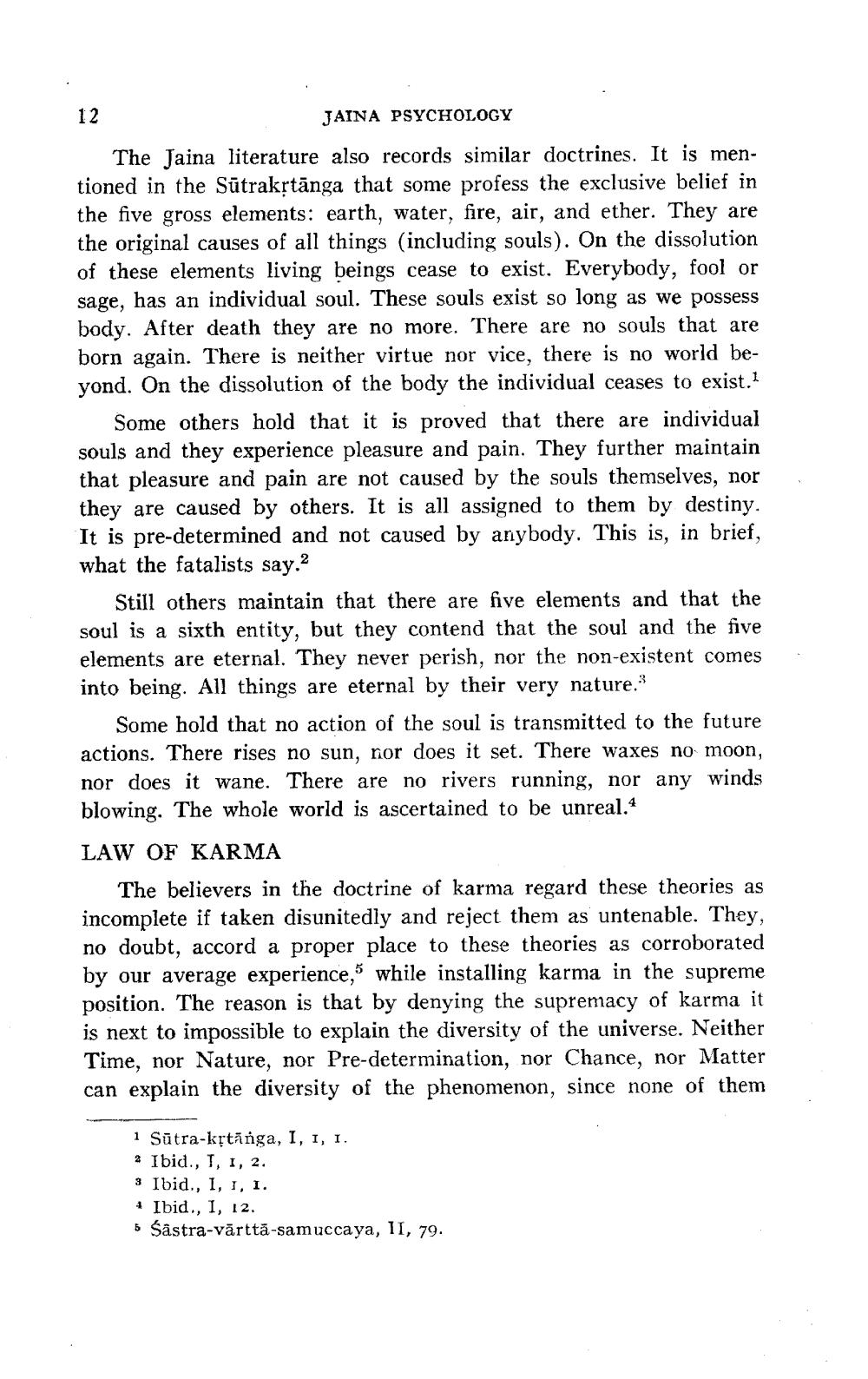________________
12
JAINA PSYCHOLOGY
The Jaina literature also records similar doctrines. It is mentioned in the Sūtrakrtānga that some profess the exclusive belief in the five gross elements: earth, water, fire, air, and ether. They are the original causes of all things (including souls). On the dissolution of these elements living beings cease to exist. Everybody, fool or sage, has an individual soul. These souls exist so long as we possess body. After death they are no more. There are no souls that are born again. There is neither virtue nor vice, there is no world beyond. On the dissolution of the body the individual ceases to exist.
Some others hold that it is proved that there are individual souls and they experience pleasure and pain. They further maintain that pleasure and pain are not caused by the souls themselves, nor they are caused by others. It is all assigned to them by destiny It is pre-determined and not caused by anybody. This is, in brief, what the fatalists say.2
Still others maintain that there are five elements and that the soul is a sixth entity, but they contend that the soul and the five elements are eternal. They never perish, nor the non-existent comes into being. All things are eternal by their very nature."
Some hold that no action of the soul is transmitted to the future actions. There rises no sun, nor does it set. There waxes no moon, nor does it wane. There are no rivers running, nor any winds blowing. The whole world is ascertained to be unreal. LAW OF KARMA
The believers in the doctrine of karma regard these theories as incomplete if taken disunitedly and reject them as untenable. They, no doubt, accord a proper place to these theories as corroborated by our average experience, while installing karma in the supreme position. The reason is that by denying the supremacy of karma it is next to impossible to explain the diversity of the universe. Neither Time, nor Nature, nor Pre-determination, nor Chance, nor Matter can explain the diversity of the phenomenon, since none of them
1 Sūtra-kstānga, I, 1, 1. 2 Ibid., I, 1, 2. 3 Ibid., I, I, I. 4 Ibid., 1, 12. 6 Sastra-vārttă-samuccaya, II, 79.




